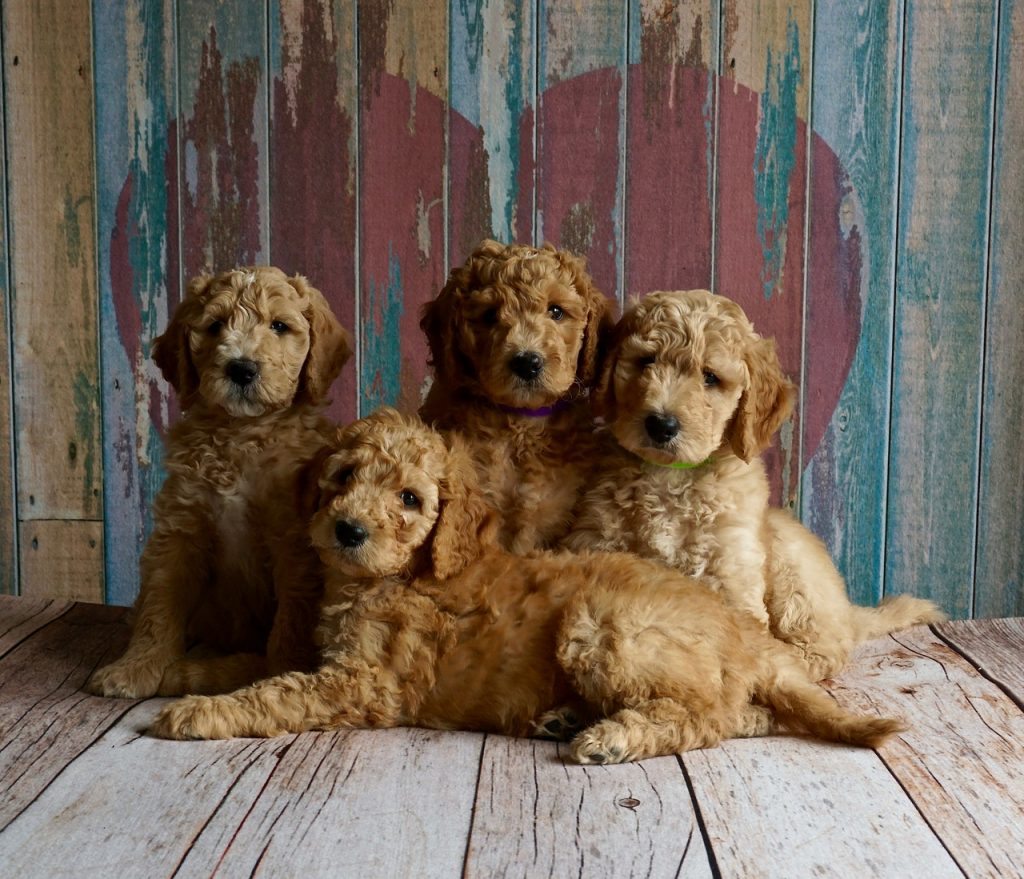
WRITTEN BY: Lazhar Ichar from Breeding Business
Breeding dogs is not something to take lightly and while accidents can always happen, it is the dog owner’s responsibility to make sure a litter is only the fruit of a long process of pedigree analysis, genetic tests and achievements.
Wanting to breed your dog just because you think he or she is the most beautiful pet out there is not enough. Let’s face it, you are biased and your opinion doesn’t matter much. This is why most notorious studs have been vetted and vouched by breed judges, awards and other achievements in dog shows. Because these successes are a lot more meaningful that the owner’s opinion.
Don’t get me wrong, dog breeding is important but I am a firm believer that too many breeders should never have bred in the first place. And I don’t think all breeders are puppy farmers, quite the opposite actually. I think most breeders get involved in dog breeding with the best intentions but end up failing miserably in their execution.
Here are the top three reasons why most dog owners should never breed that first litter — even if they really want to!
1. Your Dog Is Average
The underlying objective of every single ethical dog breeder is to improve the breed as a whole; by conforming to the standard, breeding health conditions out, or breeding dogs with amazing aptitudes.
Most of us, despite loving our pets unconditionally, don’t a specimen able to better the breed as a whole. And it’s not bad, but it just shouldn’t really be bred in that respect.
When you breed average dogs, you sell them at an average or low price tag to average families. You therefore, increase the risk of your dog ending up in a shelter. When breeding high-quality dogs, your clientele is a lot more committed and prepared to look after such a great puppy.
If you are truly convinced about how great your dog is — prove it and get involved with canine competitions and events.
Obviously, each dog has some qualities but breeding a dog can have huge consequences on the litter, so if your beloved dog hasn’t got any achievement so far, give it a miss.

2. Responsible Dog Breeding Is Very Costly
Let’s say your dog now has ranked high in several competitions and is clearly a great dog worth being considered as breeding stock. Do you even realize how expensive dog breeding is when done responsibly?
Unless you want to fall into the puppy mill category, you must get your dog checked for several health conditions from hip dysplasia to complex inherited diseases but that’s not all.
You have to find another partner and potentially pay for their stud’s semen as well as organizing the entire mating: hormonal tests to know when is the best day, shipping and vet checks throughout the pregnancy. More often than not, a pregnant bitch will lose her appetite so supplementation has to be purchased and blood tests have to be prescribed.
Once the puppies are here, you must invest in a good whelping box and have all the items required in a whelping kit. More vet visits to make sure the puppies are healthy.
And if you are unlucky, any health concern will increase the number of vet visits and the total vet bill. Breeding dogs is incredibly expensive as you then have even more mouths to feed.
The best solution is to simply sell your puppies for a higher price so you don’t take too much of a loss, right? But who’s going to pay that much for a puppy coming from average parents? Unless your parents or your kennel name are incredibly popular, nobody will shell out more than the market price.
3. You Don’t Know About The Mechanisms Behind Heredity
Alright, let’s say your dog has got a few achievements and you completely understand the costs involved with dog breeding. Who are you going to breed him or her with? Do you realize that if you breed a top Champion with an average partner, very few people will remain interested?
Canine genetics and pedigree analysis are extremely important and they are extremely difficult to comprehend. It takes several generations for dog breeders to gain experience because each litter brings a set of lessons learned.
When you are starting out, you can only study both parent’s family tree and spot patterns. The tricky part is you need to know what patterns to look for in order to find them. This all depends on your breeding program’s short and long-term goals. Once you know what to search for in the dozens of pedigrees you will study before picking a partner, you need to know whether this particular trait is inherited or acquired.
There are so many mechanisms going behind a so-called perfect litter that the amount of work needed to get you to that level is too steep for most people. Responsible dog breeding requires a lot of dedication, reading, studying, experimenting, networking, etc.
Conclusion
Quality and responsible dog breeding can’t just be achieved by treating dogs well and with respect. Ethical breeding is first and foremost bettering the breed as a whole; and this cannot be achieved by putting two dogs together and rolling the dice.
Spending years studying your preferred breed, attending shows, meeting breeders, exchanging with breed judges, networking at events, all of that will get you there. But it does take a lot of time, effort and money.
If you aren’t willing to breed dogs properly, don’t do it at all.









